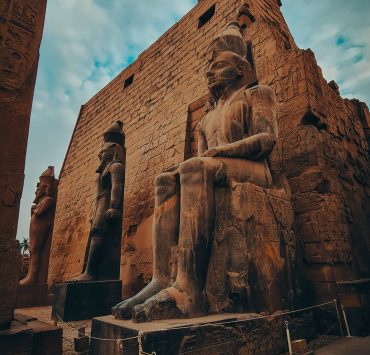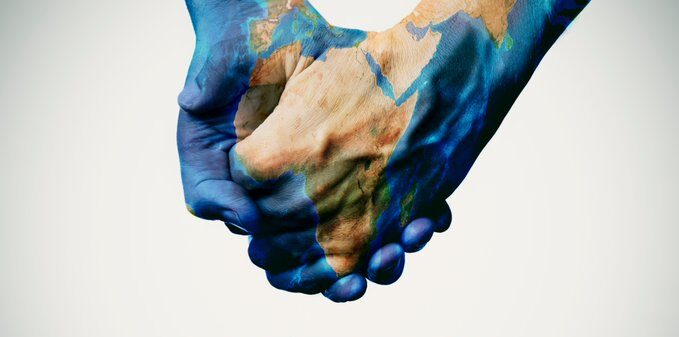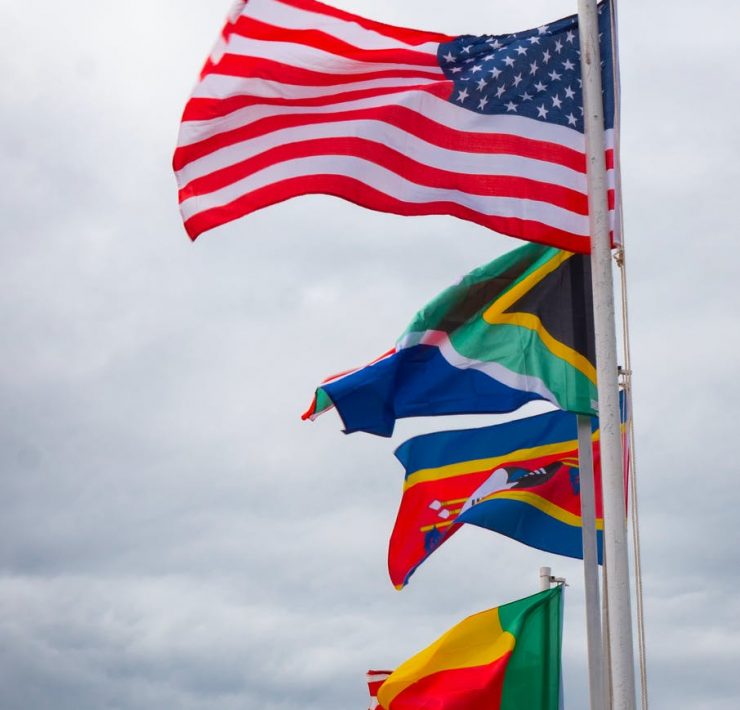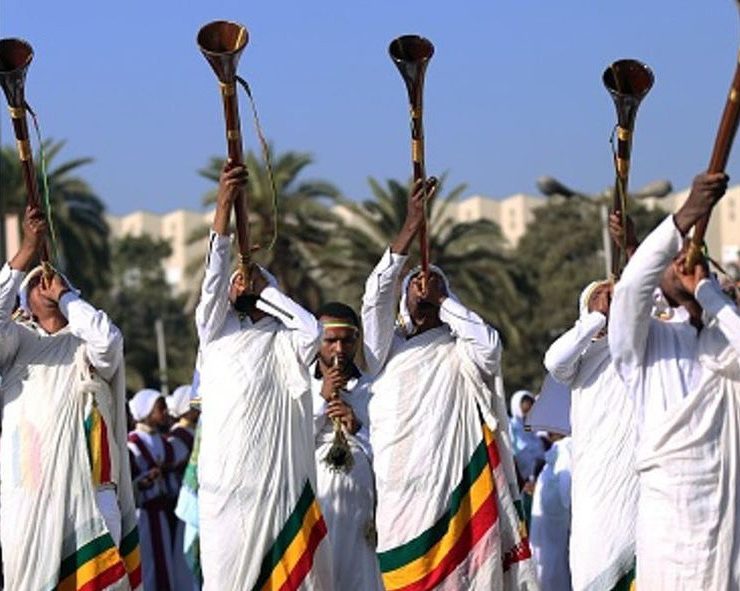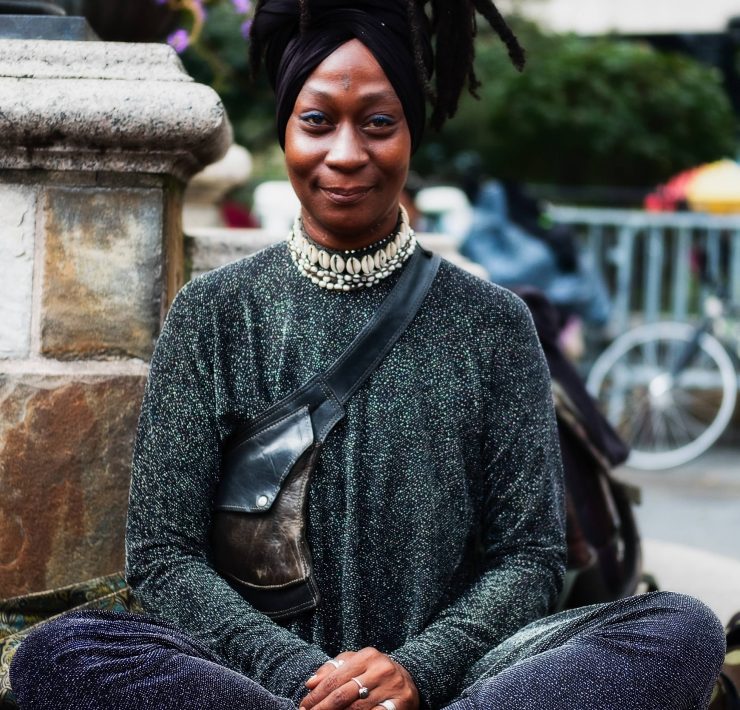
Abel Merawi is from Addis Ababa. He is an English…
Read Next
Human beings have sadly achieved the impossible, we have divided the human race. I struggle to make sense of history, and wished to view it as progression. Yet, the reappearance of some annoying human errors, makes history bleak. Ironically, history would have been different if we had learned from history. Expressed differently, recent history shows the failure to learn from distant history. Currently, we still have a chance to learn the same old history lesson. I am speaking of our grave mistake in calling unity what in reality is our separation. I am also speaking of the dehumanizing effect identity labels have on people. Amy Chua, in Political Tribes, rightly points out, “The tribal instinct is not just an instinct to belong. It is also an instinct to exclude.”
Uniting to Separate
The evidence is too overwhelming to ignore, but still we prefer dwelling in illusions. Human history is crowded with provincial social organizations, and cramped with the recurrent bloodbaths that ensued when such factions collide. However, the historians, together with the teachers and students of history, have failed to grasp the essence. We have all failed in the study of history! If we accept the definition of insanity as repetitively doing the same thing with expectation of a different result, humans are indeed collectively insane. We still fail to learn that parochialism engenders hostility, and still fail to create grand notions that embrace the whole of humanity.
Time after time, we have altered the size and criteria of grouping, yet we have not seriously examined the underlying form. This form or shape of unity is separatist, since it defines itself in contrast to others.
The tribal tendencies which fostered hostility towards ‘others’ is evident in ethnic, national and continental alliances. Our borders concentrate more on keeping others out rather than maintaining the wellbeing of members within the confines of boundaries. Just like our political organizations, our religious and social institutions too are isolationist. We have truncated humanity by limiting its scope to group identity. Our kindness has remained parochially concrete but universally abstract. If we allow ourselves to scrutinize this pervasive form of organization, we will find the common folly that menaces our existence.
Unity precedes and predates human institutions, being an inherent energy for the survival and perpetuation of every life form. Unity is a natural force of life that humans, as well as all organisms abide to, lest extinction visits the deviant species.
To offer some truisms: if human beings had to wait for the institution of marriage before they reproduced, we would have been extinct; if we had refrained from communal life until national sovereignty was determined, we would have remained detached; and if we had to wait for educational institutions in order to acquire knowledge, we would have remained ignorant. In other words, it is natural for humans to seek each other and unite; but the act of defining, contrasting and institutionalizing this natural harmony ends up confining further expansion. True, our rationality can be employed to strengthen this instinctive energy, but too often, our cognition backfires and ends up creating divisions in the pursuit of unity. Our history is evidence to our constant struggle in remodeling institutionalized human groups, and a constant neglect towards the deeply flawed tenets of our collective institutions.
Unlike the natural harmony of people, institutional unities tend to define themselves in contrast to others. When we institutionalize the natural, we replace fluidity with rigidity. To institutionalize is to name and expect consistency from what we define. There are certain types of names which possess a domineering power. When such overbearing names are uttered, those who are named are expected to live a future that maintains the integrity of the name. For instance, the name of tribes, ethnic groups, nations, religions, or ideological entities define a people with future expectations of adherence to the name. Yet the greatest danger of names is in their power to isolate the named group from other groups. In other words, the natural togetherness of people, once institutionalized, is assigned unique features that contrast and separate. As to be one thing is not to be all else, a name not only shows what is but all what is not.
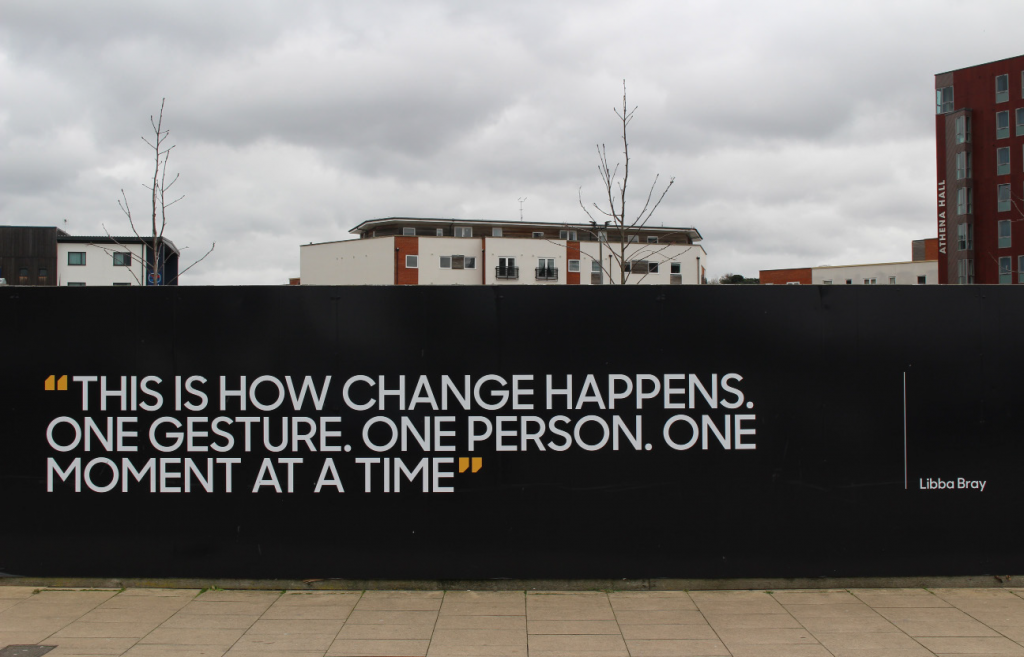 PIN IT
PIN ITBeing social is the most natural and commonest aspect amongst human beings. True, other animals also form groups, yet their sets do not exceed a certain number – for primates such as chimpanzees 150 is mostly the limit. Humans exceed this number as imagination and reason endow us with unifying ideas. However, the same unique human features – imagination and reason – too often do us a disservice as they also separate us. The ideals that define a group of people are glorified through the contrasts that distinguish it from other groups of people. As Sheldon S. Wolin in Fugitive Democracy remarks, “The sameness that is used to establish the community then becomes the ‘difference’ that distinguishes its members from nonmembers. Not infrequently it is accompanied by a demand that ‘difference’ be ‘recognized’.”
Hidden behind size and defining elements of societies resides fear – members fear the loss of uniqueness, and so wish to protect and preserve it. In our leaders I see the chieftain who requires uniformity within the tribe, but hopes other tribes remain different. Why? Well, if other tribes recognize their similarity and unite, the tribal illusion fades along with the members and group leaders. All groups share this protective element of social identity, thus negotiation and hostility dominate interactions between factions or separated unities. This is why our provincial unity is, at the same time, the cause for separation and hostility.
The hostility towards others finds a match with the hostility others harbor towards you. After you are labeled, and even if you expect to deny the label, you will be exposed to all the dangers other groups direct onto you. When you are attacked collectively, you find no escape except retaliating as a people. When individuals find themselves in such a tight situation, the risky but rational way is defending and reclaiming your individual autonomy so as to judge both sides based on facts.
While I firmly accept universal human unity as an unlived reality, the parochialism of human past and present contend to threaten my optimism. This is not to say that universal concepts like human rights do not exist; it is rather to hint at the fact that provincial institutions are not broad enough to protect them. The world is already occupied by dehumanizing labels of isms and schisms, making it hard to envision a world free of organized factions.
Dehumanizing with Labels
We all do it, and do it all the time. Yes, we do put labels and name tags on human beings. The labelling is done collectively, and the label too is attributed to a collection. We collectively strip individuals of autonomy, and we place identity nametags by suffocating signs of individuality. Remember, it is we, all of us, who assign the labels and, in turn, are also labeled. To label is to dehumanize since it robs humans of humanity and destines them to group treatments.
We dehumanize, and we too are dehumanized because all of us are playing the same deadly game.
In Notes of a Native Son, James Baldwin expresses it best by reminding us that, “the oppressed and the oppressor are bound together within the same society; they accept the same criteria, they share the same beliefs, they both alike depend on the same reality.” If clarification is needed, he is showing past and present generations that ‘Labels’ or ‘Categories’ in and of societies create both the oppressed and the oppressor, and the dehumanizing role of oppression will remain if we cling on to our labels.
Identity labels are indiscriminately attached to each person, and this dehumanizes sentient humans, reducing them to a singularity. If we allow ourselves to look closer, we notice it both in our minutest ordinary interactions and in our institutionalized dealings. Our daily social interactions begin, progress and end in labels, making it hard for genuine human interactions. We enter a taxi or a bus, and we see only a taxi or bus driver while, in turn, we are visible only as customers. We go shopping to deal with a salesperson and we become only a shopper. Our institutional interactions are no different: Ethiopians, Africans, Irish, Jamaicans, Russians, Africans, Europeans, Asians, Jewish, Muslims, Hindus, Christians, Atheists, socialists, capitalists, feminists, environmentalists, etcetera are visible only in those labels. All shuts the door on the unique individuality that resides in each human being. Labeled encounters are with singular beings defined by profession, age, religion, ethnicity, race, nationality, gender, and endless identity frames. We persist on loving and hating through labels; we end up with dehumanized interactions.
Wars are fought in the name of identity, but if the identity fought over was another, perhaps friends and enemies would be reorganized. As Amy Chua explains, “When groups feel threatened, they retreat into tribalism. They close ranks and become more insular, more defensive, more punitive, more us-versus-them.” Think of two opposing battalions, warring soldiers exchanging fire. (‘Exchanging’ is an ironic word when death is the exchange.) One side is exhilarated when a ‘comrade’ takes the life of the ‘enemy’. But suddenly the mood changes, a comrade is shot by enemy fire. The same individuals feel happy and sad when death is intentionally exchanged for the life of a fellow human being. Perhaps they are fighting a national war, but enemy and comrades would reshuffle if the identity war was of religion or social class.
Unless we are all willing to give up our labels, the struggle for freedom amounts only to exchanging roles – Who plays oppressor and who plays oppressed? Who would dehumanize and whom? In reality, both oppressor and oppressed are dehumanized. The oppressor is dehumanized by belonging to a collective identity of the superior group. The oppressed too is trapped in the inferior group. Amy Chua describes how individuals bound their identity to group even at their own peril, and remarks, “They will penalize outsiders, seemingly gratuitously. They will sacrifice, and even kill and die, for their groups.” Both oppressed and oppressor respond as crowd, both have been dehumanized by losing their individuality.
The Path Towards Humanity
If we are to build a world community to the human race, we must first shake off the socially imposed and personally sanctioned veil of arrogance. Our perennial separation feeds on ignorance. It begins with the look of bewilderment in the rudely innocent faces who mockingly look at an unfamiliar face, or who tease an unfamiliar name. It is evident in that shockingly impersonal, and indifferent comment about people: They all look alike! In a grand scale, it is evident in the European arrogance that begot ‘white’ and ‘black’ races out of skin pigment.
Human history loudly speaks of our collective, past and present, negligence of humanity. We have forgotten the precariousness of life for all of the human race. We unite to separate, and dehumanize one another by creating identity labels. But our salvation lies in the grand recognition of our interconnectedness and in our collective fate.
Grand conceptions of nationality, religion, and ideologies have united millions of people, but the same concepts have kept even more people outside. I fail to understand our failure in imagining the grandest notion that is abundant enough to accommodate all humans, or at least one that does not need distinction to define itself. Put in simpler terms, a grand social identity (1) must be accessible to all of humanity, and (2) must have a definition that describes it without comparing and contrasting itself to other social identities.
Me and you are our religions, races, our ideologies, our nationalities, or other affiliations; but we are also more than each and all identity labels. James Baldwin in Notes of a Native Son, explains, “But our humanity is our burden, our life; we need not battle for it; we need only to do what is infinitely more difficult—that is, accept it.” We are our label(s) with or without consent, but there is a creative and constantly altering humanity in us. When we see beyond labels, we discover beauty in fellow human beings.
Subscribe now for updates from Msingi Afrika Magazine!
Receive notifications about new issues, products and offers.
What's Your Reaction?
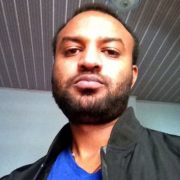 PIN IT
PIN ITAbel Merawi is from Addis Ababa. He is an English literature teacher, freelance writer/reporter for Ezega.com and an Amharic-English translator and editor. He also writes for www.msingiafrikamagazine.com. You can reach him via: abelmerawi4@gmail.com














